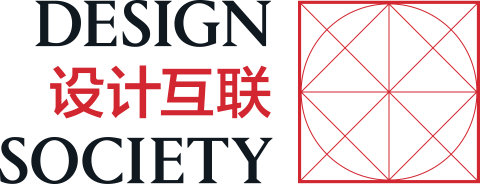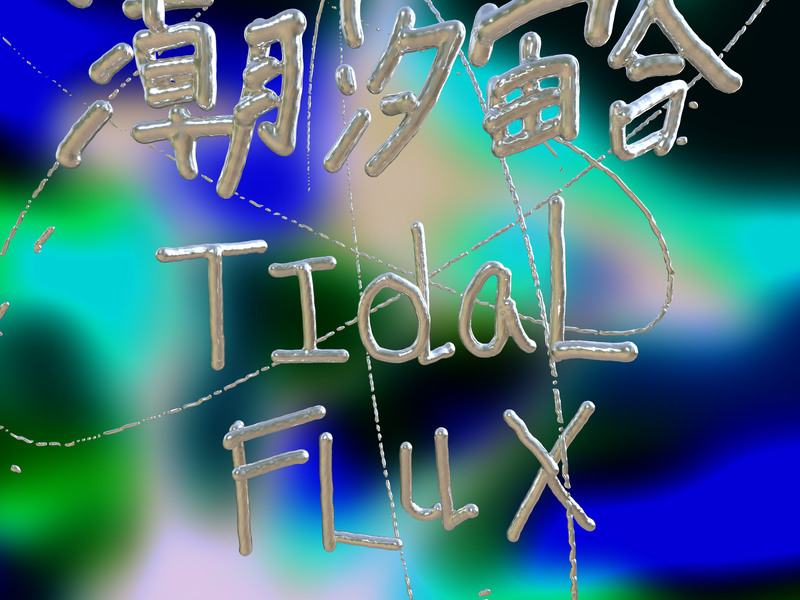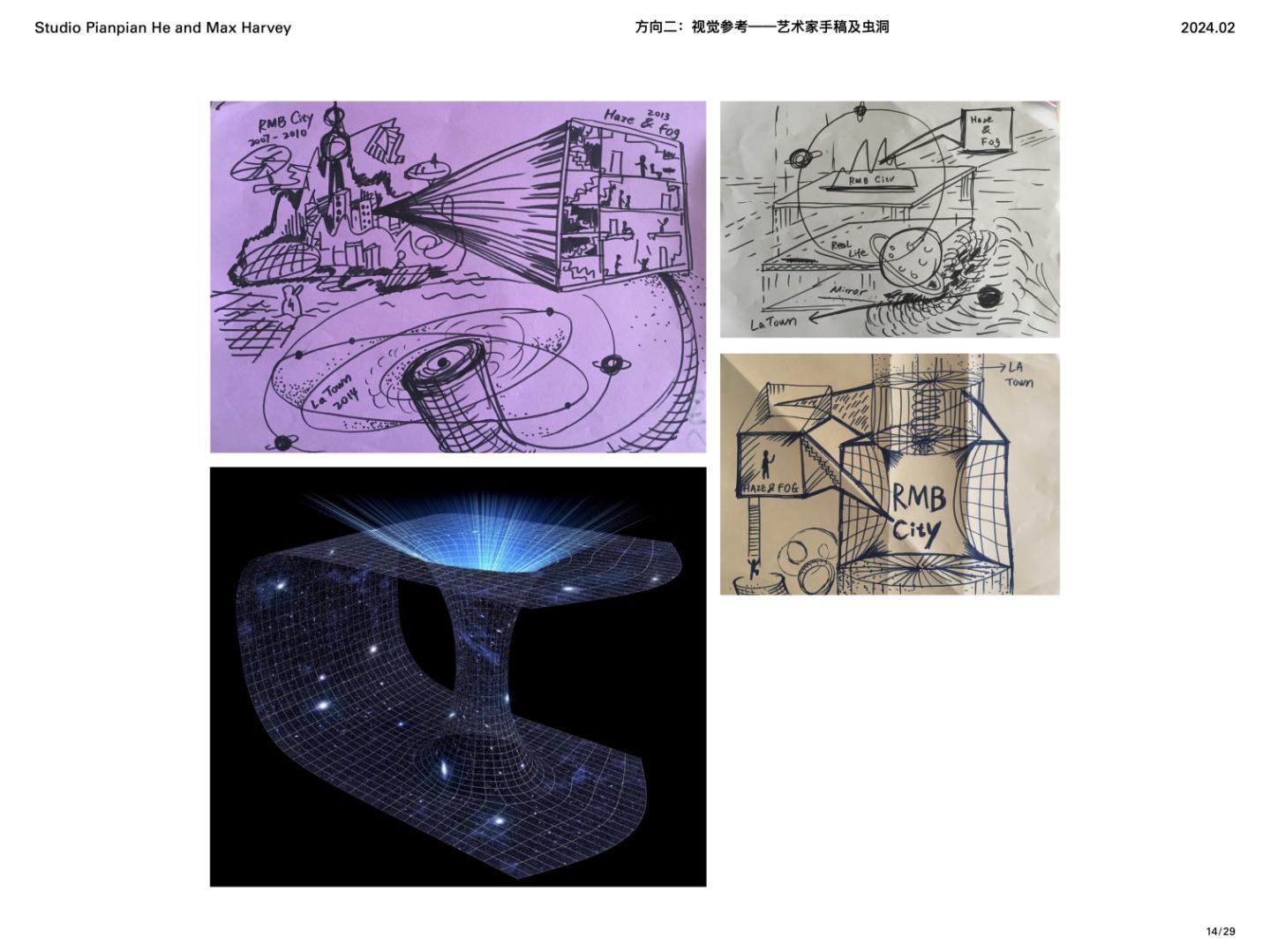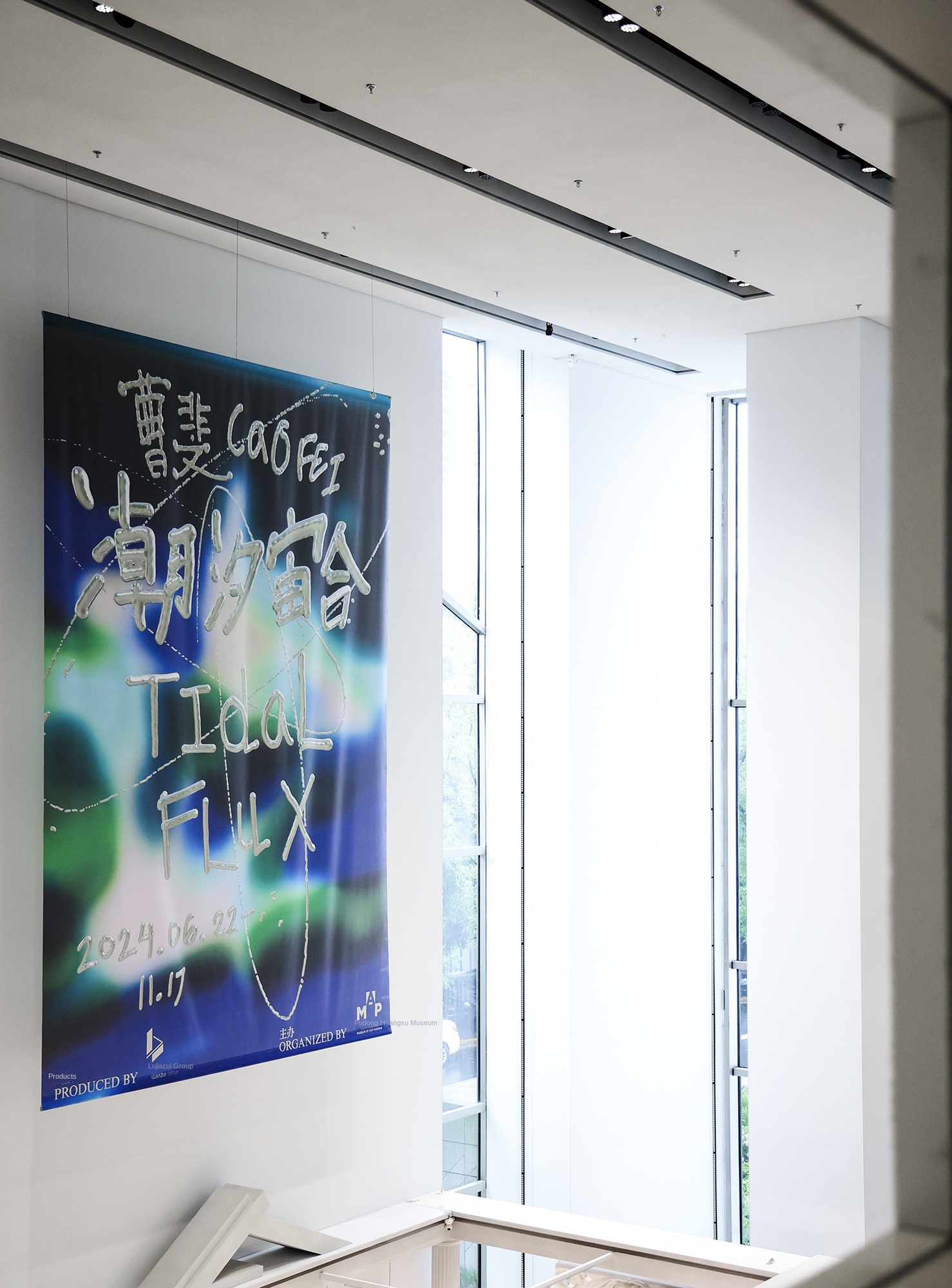
Visual Design of "Cao Fei: Tide and Chou He" Exhibition-Posters Hanging in Pudong Art Museum
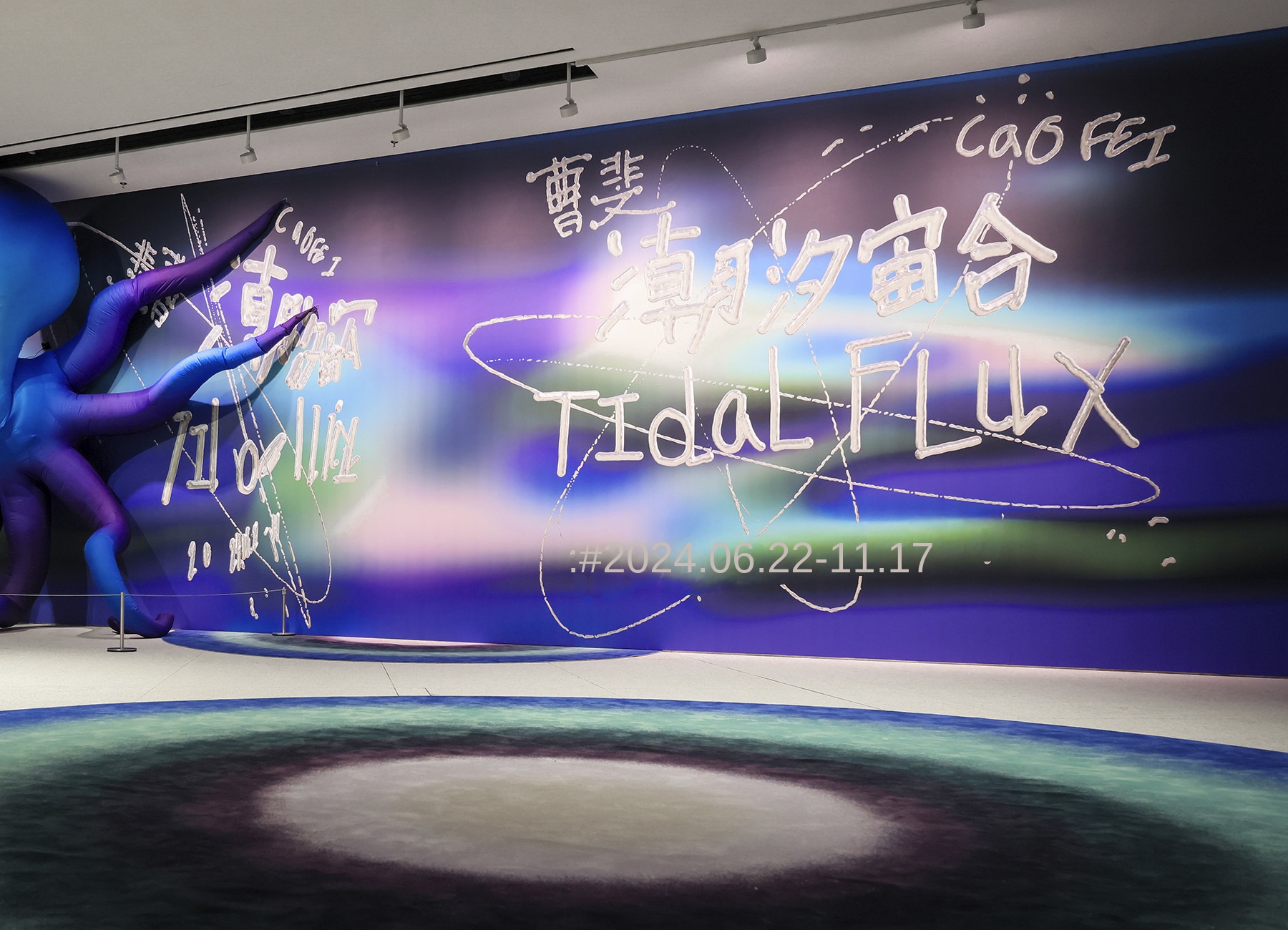
Visual Design of "Cao Fei: Tide-tide" Exhibition-Front Hall
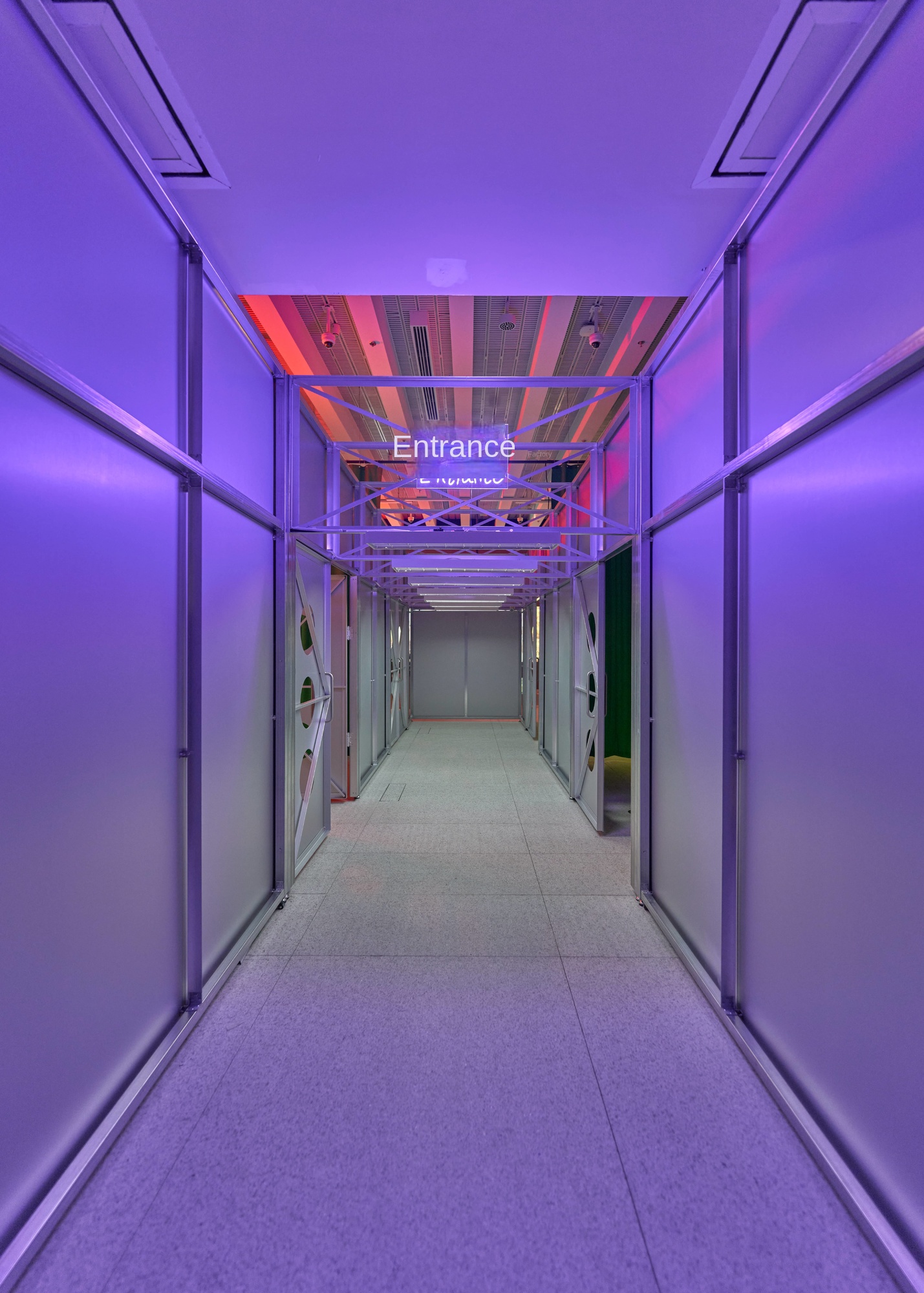
Visual Design of "Cao Fei: Tides and Tides" Exhibition-Guide System
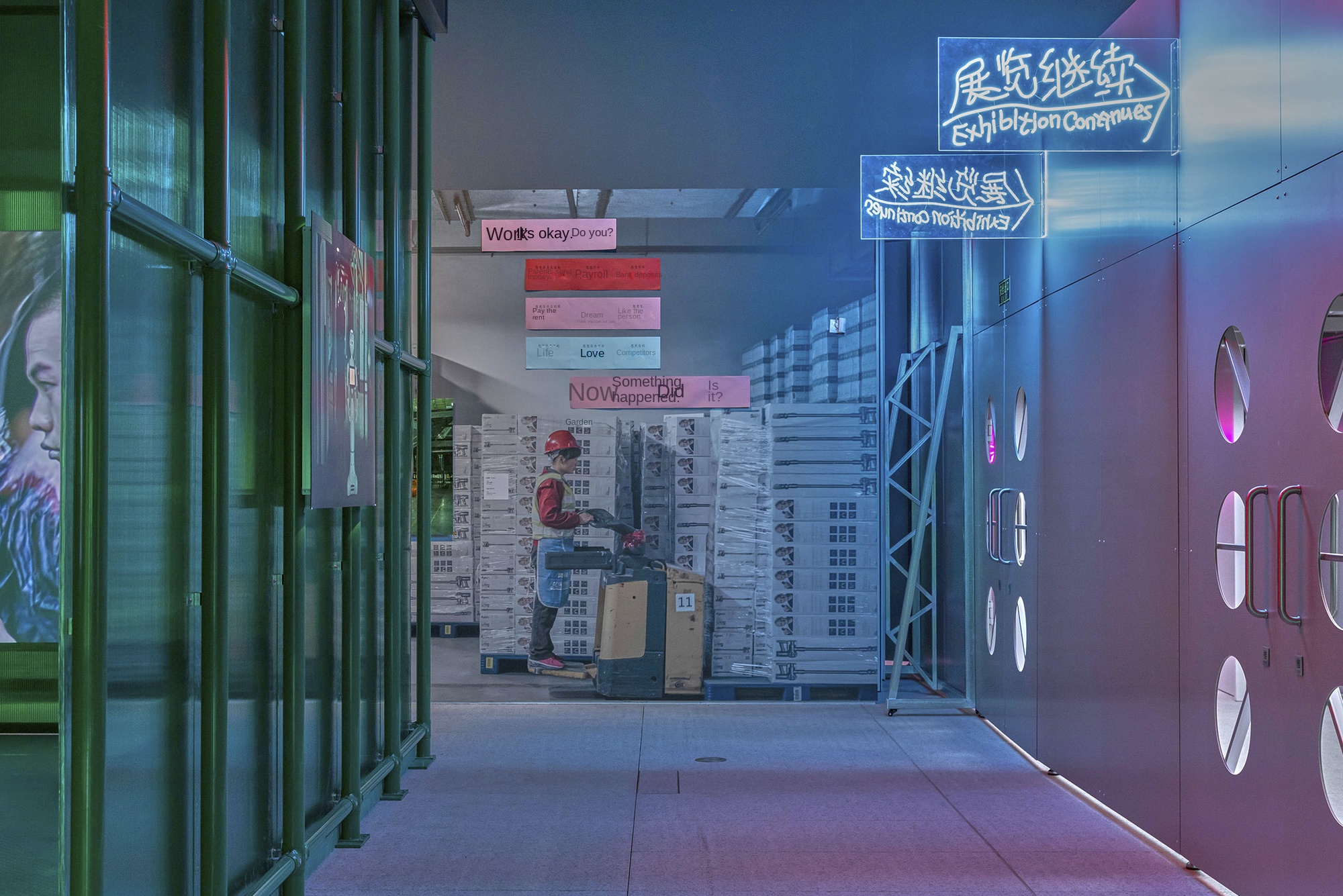
Visual Design of "Cao Fei: Tides and Tides" Exhibition-Guide System
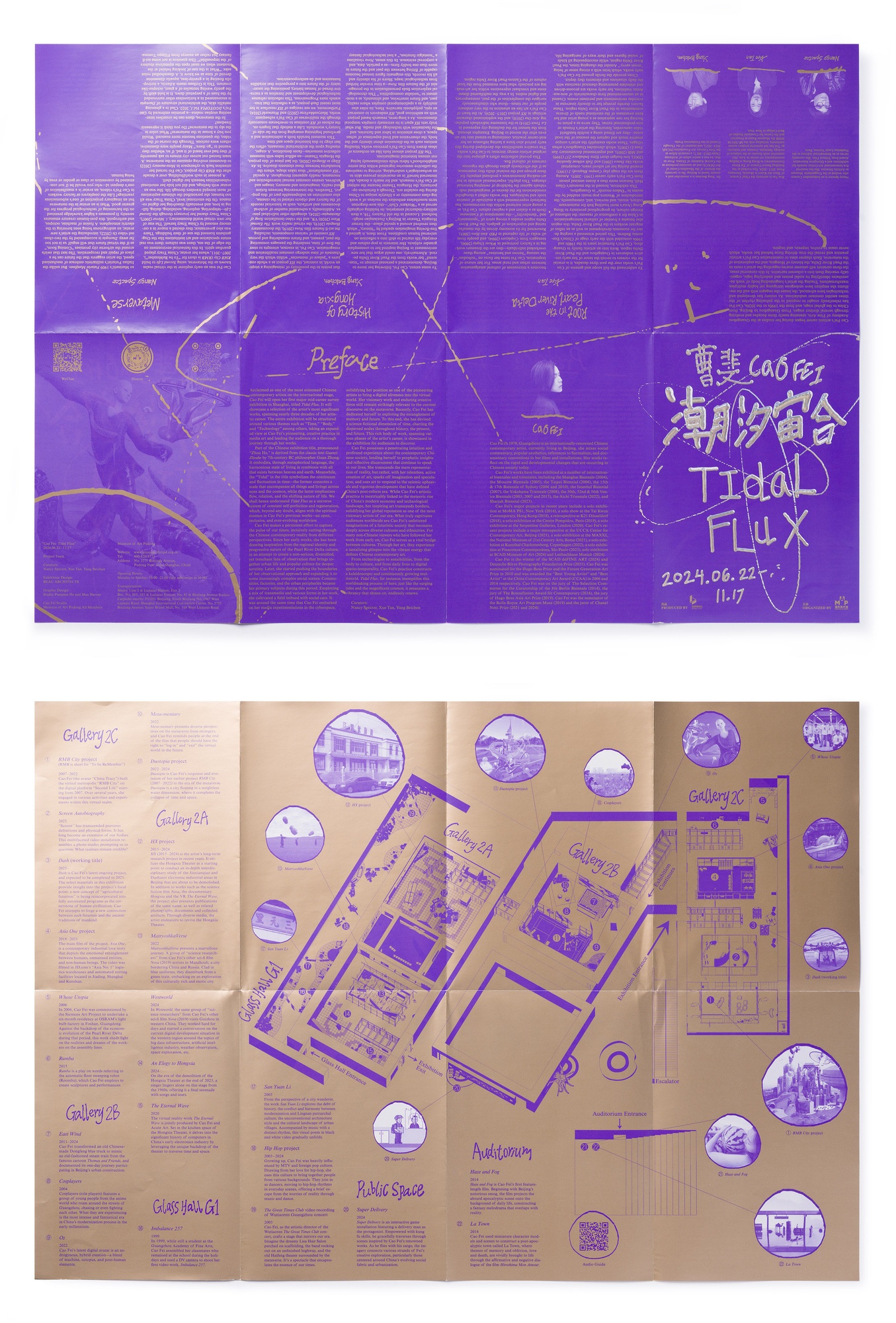
Visual Design of "Cao Fei: Tide and Tide" Exhibition-Folding
Visual Design of "Cao Fei: Tidal Azoic" Exhibition-Hall of Mirrors
Visual Design of "Cao Fei: Tide and Tide" Exhibition-Mirror Hall Corridor
Visual Design of the Exhibition "Cao Fei: Tides and Zeus"-Artist's Manuscript and Reference Chart
The visual design of the exhibition designed for the 2014 large-scale exhibition "Cao Fei: Tides and Rates" in Pudong Art Museum. Cao Fei is regarded as one of the most respected Chinese contemporary artists in the world. This exhibition is her first large-scale mid-term retrospective exhibition in Shanghai, and it is also one of the largest solo exhibitions of Cao Fei in the world.
This exhibition completely combs and shows Cao Fei's artistic practice spanning nearly 30 years. The artist makes full use of the entire two-story space of the museum, arranged in a "non-linear" manner, and outlines the depth of his artistic practice from a more flexible perspective. outline. The exhibition revolves around a series of themes such as "time", "body" and "technology", including a number of long-term important projects of Cao Fei, including the early works of the "Pearl River Delta" period. "Yuan Universe" digital virtual time and space, and the research project "Hongxia" and so on. In addition, seven works in the exhibition are exhibited for the first time in the world, and 13 works/groups are the first time in China.
Cao Fei's works are diverse and cover a wide range of styles. It is difficult to use a certain picture as the representative of his entire artistic career in this visual design. Therefore, in the design process, we drew inspiration from the manuscripts of her works, and drew on the technical means in her later works (three-dimensional model, presentation of the meta-universe, etc.), and hand-painted the posters of this exhibition in a three-dimensional environment. On this basis, a set of "distorted" font system was established for the visual design of this time. This drawing method was also applied to the later exhibition guide system and integrated with the architectural space design of the exhibition. We hope that through this seemingly "imperfect" visual language, we can trace back to the early state of Cao Fei's creation and create a sense of intimacy.
Our design practice is between contemporary art and advertising, and is facing a thorny problem: how to promote and display works without violating their original intention. In China today, this seems to be a stalemate. In an attempt to resolve this contradiction, we carefully analyze the work during the design process, retaining necessary elements, discarding parts that need not be revealed, and avoiding over-interpretation. We went against the current, deviating from the so-called efficient and fast-moving advertising model, but focusing on creating moderate and lasting designs, even with collectible value. In order to achieve such a result, close cooperation with collaborators is essential. We focus on book design, exhibition design, website design and visual identity system design, emphasizing production and production. Since we founded the studio, we have been focusing on the field of culture, dedicated to social issues. In the past few years, we have actively cooperated with curators, artists, writers, cultural institutions, students, programmers, designers, etc. (please refer to the English article for a detailed list) to continuously expand the boundaries of design in practice.
He Pianpian and Maishi Interdisciplinary Design Studio was established in 2015, located in Changsha and Montreal, actively practicing their own ideas at home and abroad, focusing on creating unique design works. The studio focuses on image making in the midst of rising and falling economic waves, and plays between limits and rules. Since its establishment, the studio has mainly worked in the cultural field, engaged in the design of books, exhibitions, websites and visual identity systems, emphasizing production and production. He Pianpian and Maishi graduated from Yale University in 2018 and 2012 respectively. Maishi is currently an associate professor in the Academy of Fine Arts of Hunan Normal University.
